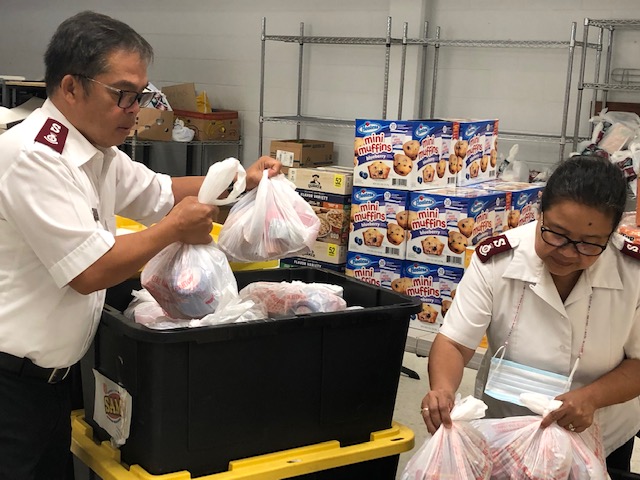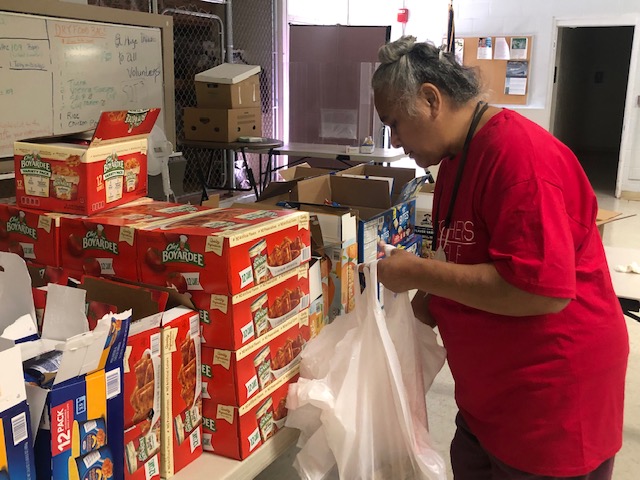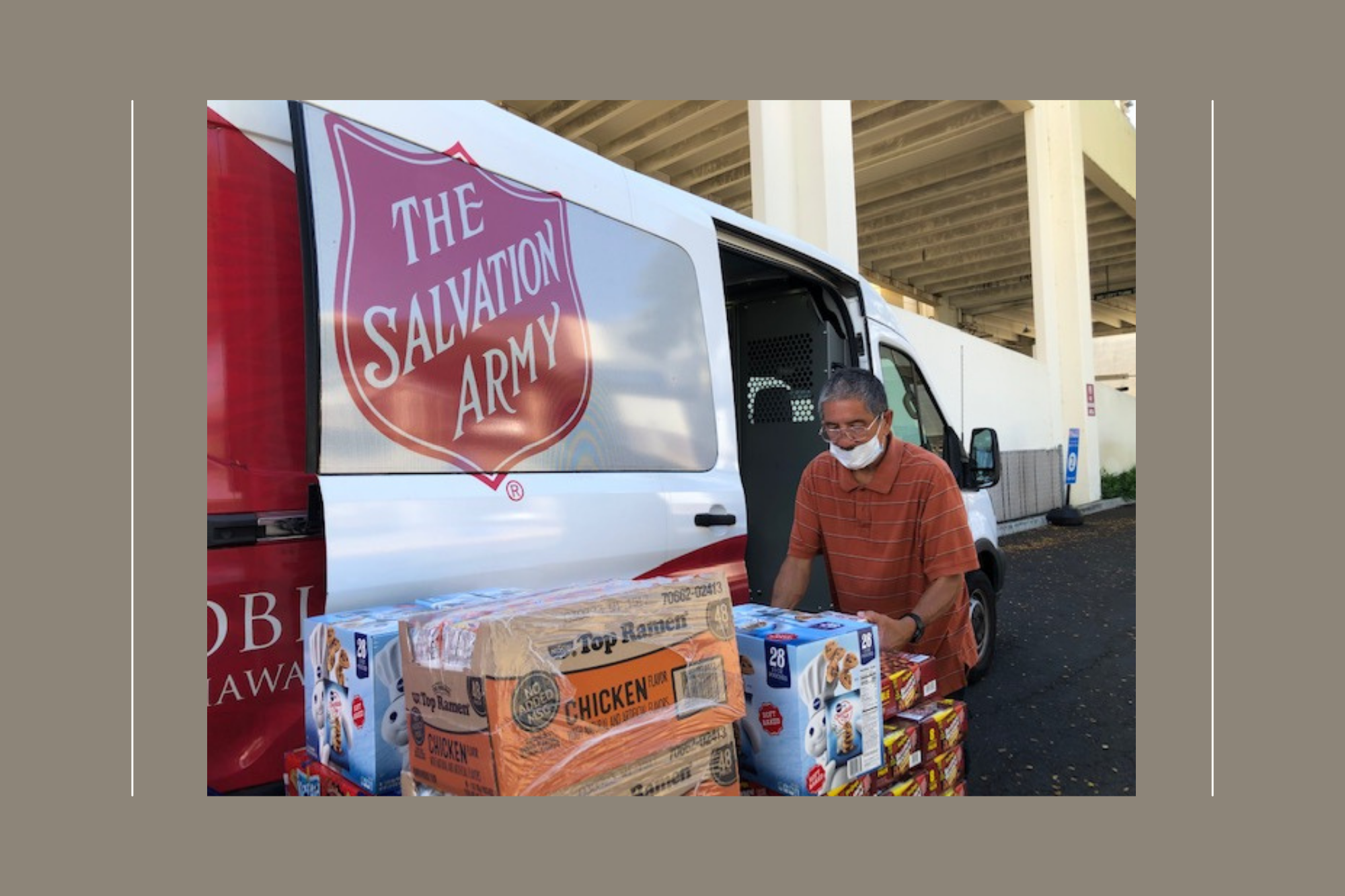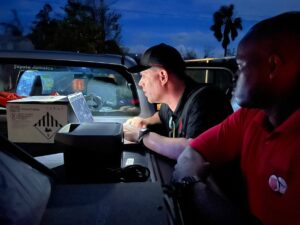Fighting youth food insecurity in Hawaii
Every Friday that school is in session in Honolulu, Hawaii, The Salvation Army Kauluwela Mission Corps brings bags of food to 200 children attending three neighboring schools. The food will feed the kids over the weekend, so they aren’t going hungry on days they don’t get free meals from the cafeteria at school.
“Some kids, as we know, they rely on food from the cafeteria during the school days. Some…don’t have food during the weekends when school food isn’t available,” said Kauluwela Mission Corps Officer Major Eric Tumale. “We want to ensure that children who are facing food insecurity during the weekends have something to eat.”
This initiative—called The Salvation Army Meals (SAM) Backpack Program—meets a crucial need for youth in Hawaii. According to a study by the University of Hawaii at Manoa, almost half of families in Hawaii with kids struggle with food insecurity.
And the demand is apparent, as there are waiting lists of families at the schools requesting assistance from the SAM Backpack Program, which is funded by individual, corporate and community partners, including Wally Tsuha, Albertsons Safeway, Central Pacific Bank Foundation, Swinerton Foundation and the Public Health Fund via the Chamber of Commerce of Hawaii.

“We’re working hard on that so that we can help them,” Tumale said.
Children currently receiving assistance were selected by their schools based on their level of need. The bags they receive are known as “backpacks.” This is because many kids were putting the food right into their backpacks to take home from school when the program started in 2018.
The bags contain nonperishable food items, like cereal, fruit cups, Spam, apple sauce and ramen noodles for meals throughout the weekend.
“Every month, we don’t provide the same [foods] so the kids are looking forward to what’s in the bag,” Tumale said. “It’s a variation of nonperishable food items that kids can prepare at home, and mostly microwaveable so that it’s easy for them.”
Salvation Army volunteers shop for the food, put the bags together, and help deliver the bags to the schools for distribution.
“Those bags of food on Friday make a difference. It’s just a good program,” said Julia Starks, a SAM Backpack Program volunteer who assists with deliveries. “It’s just seeing the kids happy faces, it makes my day.”

Tatianna Mulitauaopele also volunteers for the program and helps with packing the food bags twice a month—one week with Echelon, The Salvation Army’s emerging professionals arm, and another with a group from her church. She said she hopes that with the bags the kids realize, “that somebody loves and cares for them.”
According to Tumale, in a survey they did with participating families, all parents said, “they loved the program.”
“They shared positive feedback and immense gratitude for the SAM Backpack Program,” he said.
And they received a comment from one of the schools that the program was improving attendance to school on Fridays as well.
Tumale longs for the program to be sustainable long term and also function as a bridge to get the kids involved in other programming The Salvation Army has to offer.
“Knowing that poverty is consistent in our neighborhood, my hope is that we continue with this,” Tumale said. “The hope for us is that this program will become an entry point for the kids to join our other programs that we offer like music programs, character-building programs or summer day camps.”
Do Good:
- See how The Salvation Army fights hunger.
- Make a donation to support those in need in your community.
- How do we treat everyone with love and kindness, as if they were our neighbor? Get the Do Good Family Roadmap and take a 4-week journey for families in how to be a good neighbor. Follow the guide to see what the Bible says about the art of neighboring and take tangible steps together on your printable roadmap to be a caring, helpful, welcoming and supportive neighbor right where you are.
- Learn how The Salvation Army helps schools in Coeur d’Alene, Idaho, facilitate recess.












